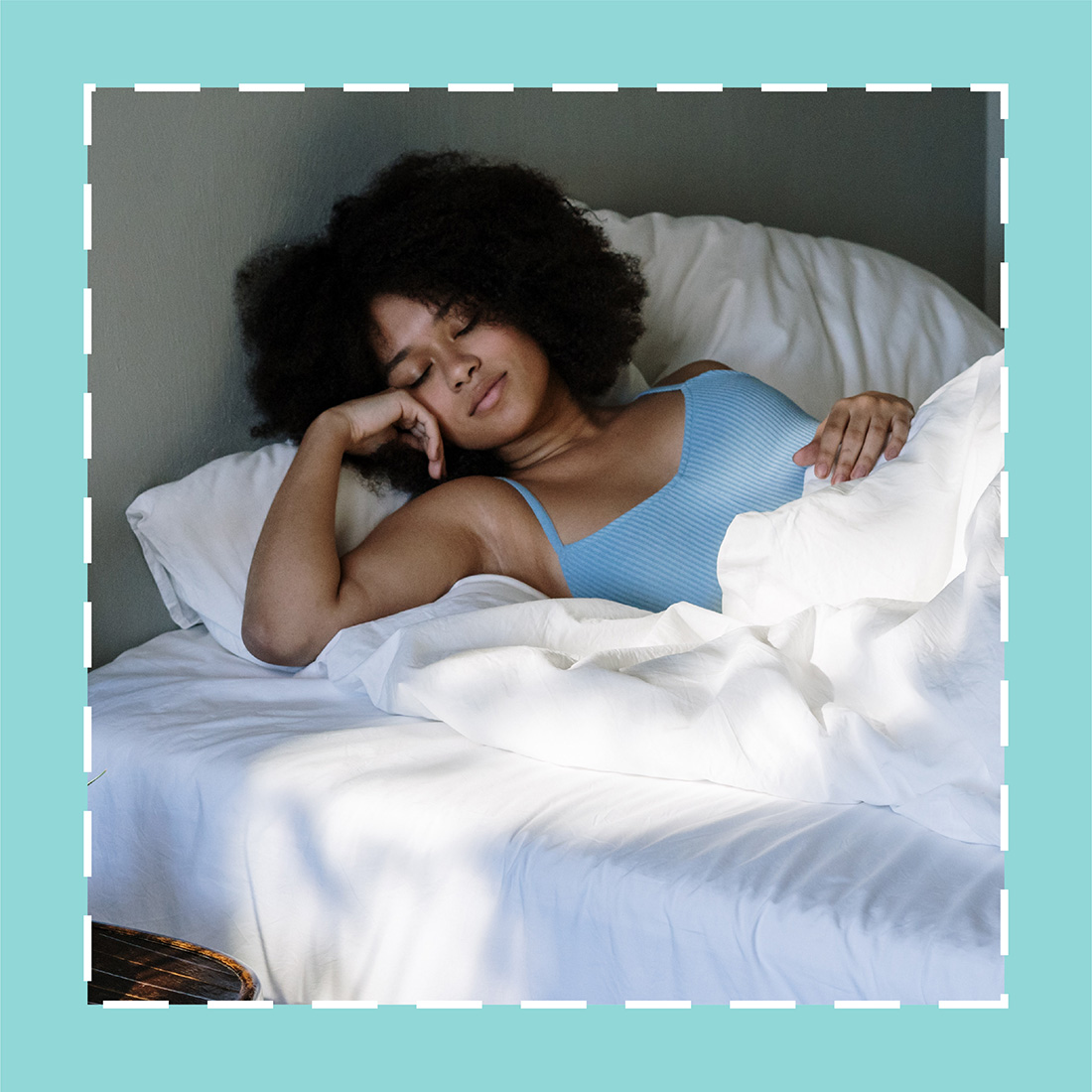Is it actually possible to sleep your way to better skin?
The secret to having great skin isn’t really a secret at all — drink plenty of water and get your ‘beauty sleep.’ At least, that’s what we’ve been told time and time again, right?
Well, while I’m totally on top of the H2O part, I’m not quite so committed to ‘beauty sleep’ (I blame Netflix), but that’s only because I don’t completely understand how getting a good night’s sleep benefits my skin. I mean, how can a few extra minutes or hours of catching some zzzs change my complexion?
Is there any truth to ‘beauty sleep’ and sleep’s benefits on the skin or is this just a myth we’ve been buying into for decades on end? I went straight to the experts to find out.
What Is Beauty Sleep
“In its most basic form, beauty sleep can be defined as getting the optimal quantity and quality of sleep to keep a person looking and feeling refreshed, young and beautiful,” Dr. George Samuel, MD, Medical advisor at WhatASleep, explains.
“While we sleep, the skin naturally goes into a repair mode, fixing damages caused during the day by regenerating new skin cells and cycling oxygen, moisture, and nutrients.” Ultimately, this leads to endless beauty benefits, which is exactly why it’s called ‘beauty sleep’.
How Much Beauty Sleep You Need
As Dr. Azza Halim, MD, a board-certified physician, and anesthesiologist at Azza MD, tells The Klog, you need to consistently sleep for a minimum of seven and a maximum of nine hours to reap the benefits of ‘beauty sleep.’
However, like most things in life, the amount of sleep you need is something that varies from person to person, provided it’s no less than six hours. In fact, “If you regularly get less than six hours of sleep, you may start to see some side effects on your skin,” says Dr. Samuel. Yikes! “The good news is that increasing your sleep by one to three hours per night can decrease the side effects within 24 hours,” he adds, “and getting an extra one to three hours of sleep for a few weeks can drastically affect your skin’s appearance.”
The Benefits of Beauty Sleep
According to Dr. Ellie Heintze, ND, LAc, Naturopathic Doctor and Licensed Acupuncturist at Starting Point Acupuncture, “Sleep is our foundation of health, and a consistent bedtime routine to ensure high-quality beauty sleep can go a long way to improve [overall] health.”
In terms of specific skin benefits, sleeping for seven to nine hours per night has the potential to leave you with plump skin, a natural glow, and even a reduction in wrinkles, fine lines, dark circles, and inflammation.
What Happens To Skin While You Sleep
“At night, the skin basically conducts a natural repairing activity to reverse the damage suffered during the day,” explains Dr. Samuel. “While sleeping, the cell mitosis (new skin cells) and collagen production increases, both of which help the skin feel more firm and smooth. In addition, at night, the skin isn’t under any environmental stress, allowing the body to circulate more blood and oxygen, making the skin livelier while removing toxin build-up.”
He elaborates, “The restorative power of sleep on the skin is mainly dependent on the two hormones: HGH and Melatonin, both released in different phases of sleep. The Melatonin production increases around midnight (REM phase) and it works to reverse the skin damage due to aggressors like UV rays and dust and it makes you feel sleepy. HGH, on the other hand, is responsible for skin repair and skin cell regeneration.”
What Happens To Skin When You’re Sleep Deprived
When you don’t get your beauty sleep, your body won’t be able to maximize the recovery process, resulting in puffy eyes, dark circles, fatigued skin, acne, and, over time, even an increase in wrinkles.
“When we are deprived of beauty sleep, not only do we age internally as a result of elevated cortisol levels (which is a stress hormone associated with inflammation), but also externally as a result of decreased circulation thereby skin looks dull and lacks its glow and hair looks dry,” Dr. Azza Halim says. “Decreased circulation is associated with decreased nutrients to skin and hair as well as our brain.”
How to Sleep Your Way to Better Skin
- Avoid salty food before bed: “Salty food before bed can cause puffiness near the eyes as the body tends to hold extra water to compensate for the extra salt,” Dr. Samuel explains.
- Create a consistent sleep schedule: “Get your bedtime routine down to ensure high quality and restful sleep,” Dr. Heintze says.
- Aim for seven to nine hours of sleep: It’s the easiest way to avoid puffy eyes and dark circles.
- Sleep in a cooler room (65°F): According to Dr. Samuel, “Sleeping in a cooler room minimizes epidermal water loss or moisture loss due to sweating, allowing the skin to remain hydrated and moisturized.”
- Sleep on your back: “Sleeping on the side or stomach, can compress your face for long hours at a time, resulting in wrinkles,” Dr. Samuel says.
- Stay hydrated: They don’t tell us to drink two liters of water a day for no reason!
The Bottom Line
Turns out, the long standing ‘beauty sleep’ myth is, well, true. So close out your Netflix tabs, pull out only your most comfortable blankets, and catch those reparative zzzs.
